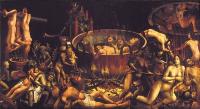microeconomics
Articles tagged with microeconomics
Tag Archive
- 2016
- Acarte
- Alexandra Lucas Coelho
- Andanças
- anti-semitism
- archive
- arte contemporânea
- artists
- artwork
- asian workers
- audre lorde
- biden
- Biennial – S. Tomé
- black music
- Cabo-Verde
- Capitalismo
- celebration
- CES
- cinema indígena
- circulação de saberes
- Collective of Victims
- colonial unconscious
- composer
- Conceição Evaristo
- contemporary art
- Content Production
- coragem
- crioulização
- développement
- diálogo
- Dictatorship
- diversidade
- dj marfox
- drawing
- Epistemodiversity
- eurocentrism
- Exhibition
- Filipe Mukenga
- France
- guerra civil
- heteronormative
- Ícaro Lira
- Ilha de Santiago
- international relations
- Irineu Destourelles
- iwalewahaus
- Joana gomes
- Joëlle Sambi
- José Saramago
- journeys
- judith butler
- lendas
- Ligue arabe
- litterature
- Lumumba Square
- matter
- meteorisation
- Mickey Fonseca
- mpla
- Museu é o mundo
- music industry
- Mwamby Wassaky
- não dança?
- Nicholas Mirzoeff
- Octavia Butler
- opinião
- Orlando Pantera
- PAIGC
- Paulina Chiziane
- peinture
- percepção
- pintura
- Pipas Forjaz
- poem
- police violence
- políticas de ação afirmativas
- Portugal
- post-memory
- Power
- Práticas artísticas
- primatas
- production
- programation
- pscianálise
- René Tavares
- revolution
- Sao Tomé e Príncipe
- Sao Tomé et Príncipe
- short filme
- SOS Racismo
- South Facing
- south south
- Tarnac
- travelling
- urbanism
- viagem
- voting
- water
- x
- “(Re)membering
 The central trope of the various efforts to define moral economy has been an opposition between, on the one hand, the maximizing individual and ever-expanding market of classical political economy, and on the other a community governed by norms of collective survival and believing in a zero-sum universe: i.e. a world where all profit is gained at someone else's loss. The communal/zero-sum side of this equation is broadly consistent with African beliefs identifying capitalism and witchcraft as the dangerous appropriation of limited reproductive resources by selfish individuals.
The central trope of the various efforts to define moral economy has been an opposition between, on the one hand, the maximizing individual and ever-expanding market of classical political economy, and on the other a community governed by norms of collective survival and believing in a zero-sum universe: i.e. a world where all profit is gained at someone else's loss. The communal/zero-sum side of this equation is broadly consistent with African beliefs identifying capitalism and witchcraft as the dangerous appropriation of limited reproductive resources by selfish individuals. 